MIT Faculty Founder Initiative
The MIT Faculty Founder Initiative was created after a research project done by Sangeeta Bhatia, Susan Hockfield, and Nancy Hopkins revealed that women had founded less than ten percent of the 250 biotech startups created by MIT professors, even though 22 percent of MIT faculty are women.
From this data, the study estimated that if female faculty had been founding startups at the rate of male faculty, there would be forty additional biotech firms today.
What that means is 40 more potential medicines. The societal impact of that is really important. It’s a lost opportunity.
In response to this study, the MIT Faculty Founder Initiative was launched in 2020 by the School of Engineering, in collaboration with the Martin Trust Center.
Our aim is to increase the number of female faculty members at MIT who start biotechnology companies through the MIT Faculty Founder Prize Competition, supported by Royalty Pharma. We believe this is important to level the playing field for female faculty while also bringing high-impact technologies to the world that are not currently being commercialized.
The Initiative is led by Sangeeta Bhatia (Wilson Professor of Engineering; member of four national academies; Lemelson Prize winner; 7-time founder including Glympse Bio and Satellite Bio) and Kit Hickey (Senior Lecturer at MIT Sloan; serial entrepreneur and co-founder of Ministry of Supply) in collaboration with Susan Hockfield (MIT President Emerita and Professor of Neuroscience).
Background
In the fall of 2021, the MIT Faculty Founder Initiative launched the MIT Faculty Founder Prize Competition, a $250K prize competition. The program accepted 9 MIT female faculty members into its inaugural cohort. Participants received mentorship, stipend money, advice, and support in incorporation, team formation, fundraising, IP strategy, and incubator space.
Throughout the year, participants had opportunities for 1:1 advising sessions with best-in-class mentors with biotech experience. The first year of the program culminated with a competition finale where the participants presented their pitch to a panel of judges from academia and biotech. The grand prize winner received $250,000. Two runner-up winners received $100,000 each. Eight of the nine faculty members who started in the program are continuing the development of their projects.
The MIT Faculty Founder Initiative aims to roll out our prize competition model to additional universities throughout the country, in order to become a national leader and support other universities in addition to MIT. The MIT Faculty Founder Prize Competition is supported by Royalty Pharma.
Impact of the MIT Faculty Founder Prize Competition
Through the MIT Faculty Founder Prize Competition, we have seen lasting impact:
- “The MIT Faculty Founder Prize Competition definitely accelerated my courage. I would not have started my company if not for the program.”
- “I’m launching a company because of the program. Otherwise, it would have been 3-4 years later.”
The first MIT Faculty Founder Prize Competition saw eight participants continuing on with their project beyond the competition as seen below.
MIT Faculty Founder Prize Competiton: 2021-2023 Cohort
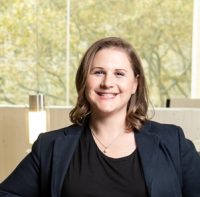
Ariel Furst – Chemical Engineering
At Seia Bio we have developed a revolutionary coating that protects microbes from harmful stressors such as heat, UV light, and humidity. As the global population continues to grow, maintaining long-term access to a stable food supply is an increasingly urgent challenge. Chemical fertilizers have ensured consistent crop production over the past century, but their production causes significant CO2 emissions. In nature, microbes can continuously produce nutrients for plants and replace the need for chemicals. These biofertilizers represent an impactful change in the way we grow food. Unfortunately, they are fragile and susceptible to stressors such as heat and humidity, limiting their potential use. Our coatings can protect these biofertilizers, enabling their distribution to farms for regenerative agriculture.

Canan Dagdeviren – Media Lab
The main innovation that our technology (conformable UltraSound Breast Patch: cUSB-Patch) will provide is a fundamental shift in how clinicians and patients can screen for, detect, and diagnose breast cancer, especially since early detection is the key to increasing survival rates. In our work, we are developing technologies to make ultrasound lower cost and usable by less skilled operators at home.

Ellen Roche – IMES and Mechanical Engineering
Spheric Bio is building out a platform technology that combines the benefits of minimally-invasive procedures with the benefits of patient-specific additive manufacturing. With this technology, we aim to generate customized soft implants directly at the target tissue site in the patient’s body while avoiding adverse procedural complications and local tissue trauma. As a target application, we are particularly interested in intracardiac defects because 1) they are difficult to reach and 2) they tend to display high patient-to-patient variability. We believe our approach will enable on-the-fly production of intracardiac implants that match each patient’s unique anatomy in a same-day minimally-invasive procedure.

Elly Nedivi – Brain and Cognitive Sciences
This project’s aim is to develop genomic assays for the accurate diagnosis of bipolar disorder (BD) and to provide high-throughput methods to screen and select individuals for likelihood of successful treatment with one or more therapeutic regimens, based on their genetic sequence, essentially providing personalized treatment regimens for BD, and for predicting their success at the molecular level.

Laurie Boyer – Biology and Biological Engineering
MultiLogEx aims to bring high-throughput, super-resolution imaging to drug screening and discovery. Our technology platform enables visualization of nanodrugs as well as their phenotypic consequences at high-resolution across thousands of cells. MultiLogEx solves a critical workflow and resolution bottleneck that helps scientists get safer medicines to patients faster.
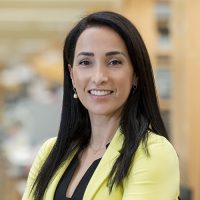
Natalie Artzi – Institute of Medical Engineering and Science
Our technology represents a new paradigm in cancer therapy where drugs or drug combinations are being delivered locally, and in a controlled manner, right at the tumor site. This enables realizing a therapeutic window, enhancing treatment outcomes, and eliminating side effects that are associated with systemic delivery of drugs. This is particularly of interest in tumors where biological barriers to delivery limit the most potent drugs from reaching their target to eliminate cancer.
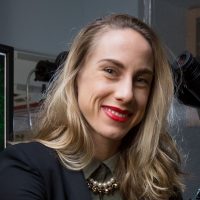
Polina Anikeeva – Material Science and Engineering and Brain and Cognitive Sciences
At NeuroBionics, we are redefining the human machine interface. We have developed soft, minimally invasive implants that can seamlessly interface with the human body. Our implants are made of flexible, multifunctional fibers which are nearly as small as a human hair. These fibers can deliver drugs, sense, and stimulate the biological environment, offering a versatile platform technology for therapeutics, diagnostics, and monitoring. Our implants can be delivered into the body through a minimally invasive outpatient procedure, where they can wirelessly communicate with external devices. Our technology has gone through extensive pre-clinical validation in the brain, muscles, nerves, and spinal cord of small and large animal models over the past decade.

Tal Cohen – Civil Environmental Engineering and Mechanical Engineering
Thyroid cancer is the sixth most common cancer in women and its prevalence is increasing exponentially over time. Moreover, only a small portion (~5%) of thyroid nodules are malignant. Diagnosis of malignancy with conventional fine-needle aspiration biopsy and cytological molecular testing has substantial limitations and surgical removal is required in nearly all cases for definitive diagnosis. Cohen’s research group has developed a technology that can obtain point-of-care, rapid, and objective mechanical signatures of tissue properties. This technology can enable improved pre-operative thyroid nodule diagnosis and can substantially decrease the number and complications of unnecessary surgeries. Testing of ex-vivo human thyroid tissue is expected to begin at MGH in the coming months.
Our First Cohort (2021-23)
Faculty Founder Initiative Team
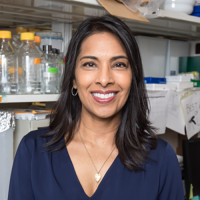
Sangeeta N. Bhatia, MD, PhD
John J. and Dorothy Wilson Professor of Engineering

Kit Hickey
Executive Director

Macauley Kenney
Trust Center EIR & Program Liaison
Faculty Founder Initiative Advisors
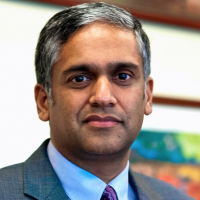
Anantha Chandrakasan, PhD
Dean, MIT School of Engineering

Susan Hockfield, PhD
Professor of Neuroscience and MIT President Emerita

Chris Coburn
Chief Innovation Officer, Mass General Brigham

Bill Aulet
Managing Director, Martin Trust Center for MIT Entrepreneurship

Follow